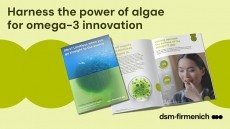Meso-zeaxanthin is pharma and needs holistic research beyond eye health, says expert

Dr Stuart Richer, who presented a talk at Vitafoods Europe 2014 on the influence lutein had on sight and driving safety, said that more research was required on the long-term affect of the meso-zeaxanthin molecule on the rest of the body. He accepted the important role meso played in eye health, but said holistic research was needed to determine whether it could detract from the other carotenoids in the rest of the body.
"I consider [meso] to be a quasi-nutritional supplement - quasi, or synthetic, type nutrient supplement - because it's really a derivative of lutein that is only found in the retina. So it's almost as if it's a pharmaceutical. It's a synthetic, quasi pharmaceutical," he told NutraIngredients.
Richer said meso-zeaxanthin - found at the very center of the retina but only in the diet in very small traces - may hold potential as a pharmaceutical ingredient but in his mind it was not a dietary supplement.
Meso is one of three carotenoids along with lutein and zeaxanthin found in the macular pigment of the eye which filters damaging blue light. Unlike meso, lutein and zeaxanthin are commonly found in the diet and are often extracted as a supplement ingredient from marigolds. Meso however is only found in very small amounts of food - in some fish and in the yoke of chicken eggs through its addition to animal feed, with manufacturers making meso from lutein.
Classification: Pharma or nutritional supplement?
Richer said a "series of impressive publications" from the likes of the Waterford Institute in Ireland had shown, categorically, that meso builds pigment in the retina. However, he said such findings might instead point to a pharmaceutical role. When asked if he thought this might mean its use should be governed by different rules to that of dietary supplements, he said this could be necessary.
"This is a natural foods conference," he said. "And we're talking about items that are in the diet- that typically have a safer profile typically than synthetic molecules."
The bigger picture: Scientific uncertainties must be addressed
Meso researchers and manufacturers have said recent dialog around meso has been shrouded in commercial interests, but Richer said there also remained scientific uncertainties that should be addressed.
"Why the meso question is so critical is because, what it is doing in other tissues other than the eye? We know it builds pigment in the fovea but we've never found meso in any other place in the body, only in the retina. So by flooding the body with meso, we don't know what the effect is. That's not a commercial question, that's a scientific question," he said.
He said it was possible that long term supplementation of meso could create unhelpful competition with other carotenoids in other parts of the body.
"We don't know what happens over a long period of time should we supplement with high doses of meso in terms of repleting the brain with lutein which is what it requires."
In Richer's talk on the carotenoids' effects on driving dangers like night blindness and the ability to make safe turns quickly, he referenced his own and other's research on the nutrient's influence on cognitive health and even hearing. He suggested this approach should be taken with meso also.
"I think overall we need to think about these carotenoids as having an affect on multiple systems and multiple tissues in the body and not just on the eye," he said.
















